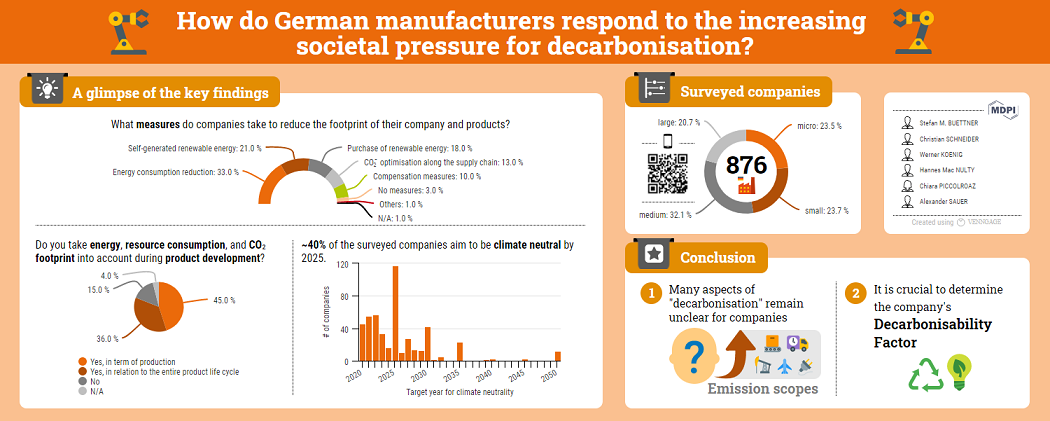From the perspective of manufacturing companies, the political, media and economic discourse on decarbonisation of the recent years manifests itself as an increasing social expectation of action. In Germany in particular, this discourse is also being driven forward by powerful companies, respectively sectors, most notably the automotive industry. Against this background, it was examined how German manufacturing companies react to rising societal pressure and emerging policies. It is examined which measures the companies have taken or plan to take to reduce their footprint, which aspirations are associated with this and by which structural characteristics (company size, energy intensity, sector) these are influenced. A mix methods approach was applied, utilising data gathered from approx. 900 companies in context of the Energy Efficiency Index of German Industry (EEI), along with media research focusing on decarbonisation plans and initiatives announced. We demonstrate that one-size-serves-all approaches are not suitable to decarbonise industry as the situation and ambitions differ considerably depending on size, energy intensity and sector. Even though the level of ambition and urgency is high, particularly micro and energy intensive companies are challenged. The research uncovers a series of questions that call for attention to materialise the ambitions and address the challenges outlined.

